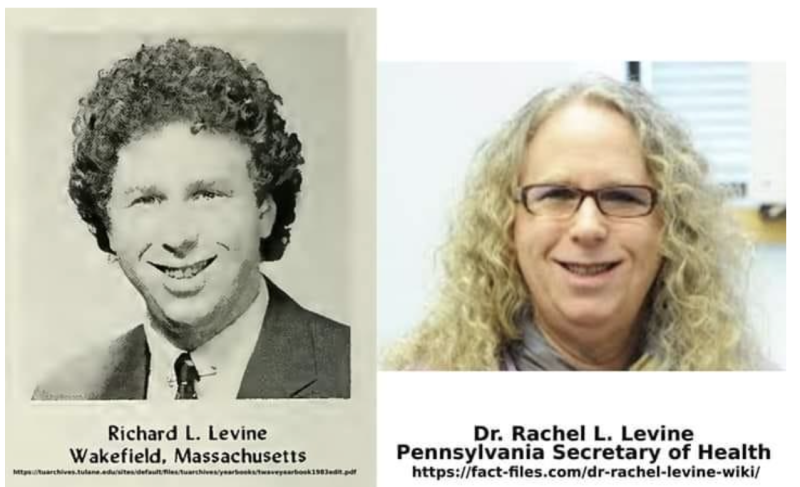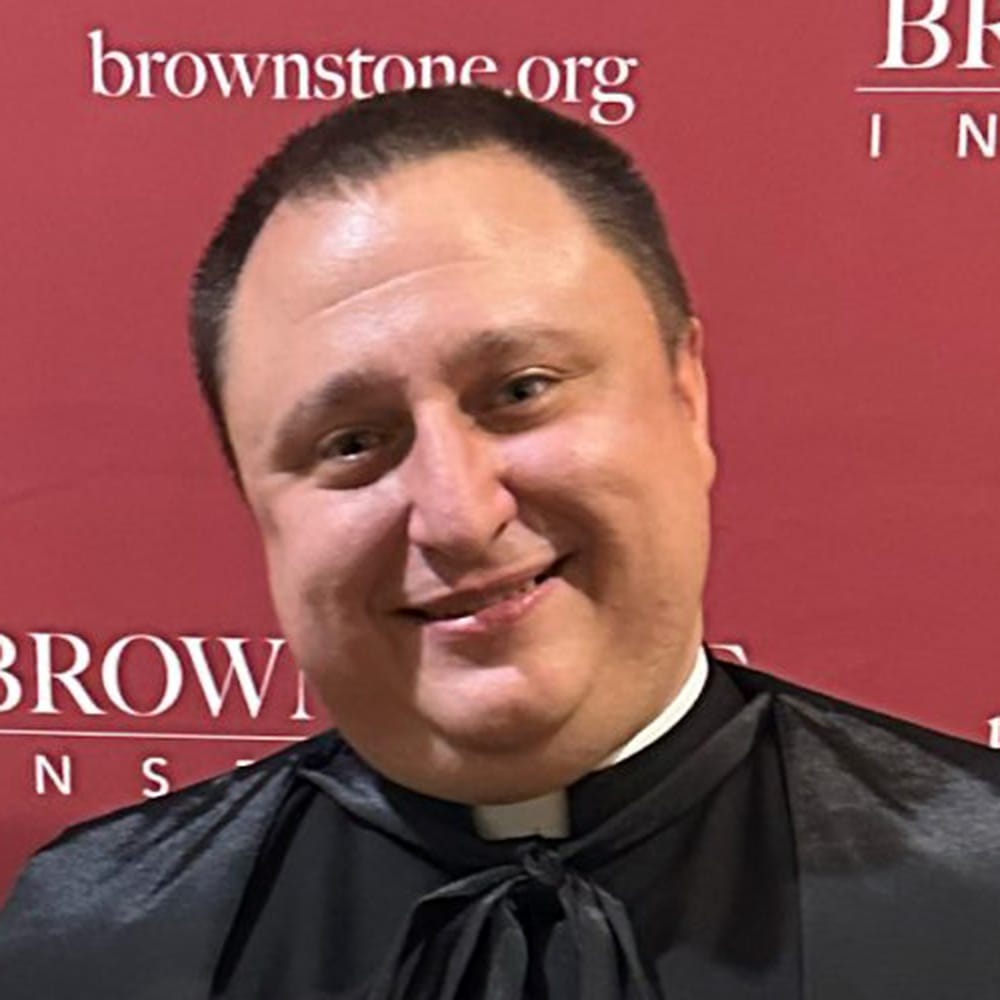Brace yourself, dear reader, for a statement that will be punished severely by most of the social media landscape and may even be considered a “hate crime” in some jurisdictions:
Richard Levine is a bad man.


In fact, I have no doubt committed at least three hate crimes against the person of Admiral Levine. First, I have referred to him as a man, even though he insists on being called a woman. Second, I have “deadnamed” him by using his birth name given by his parents rather than the new name he has given himself.
Third, and most fundamentally, I have labeled the series of events and the attributes of character that led to a Richard becoming a Rachel as “bad.”
There is an extreme level of irony at play in this case, however, as the very etymology of the English word “bad” indicates that this is precisely what Dr. Levine is; “bad” derives from the Old English word bǣddel which means “hermaphrodite, womanish man.”
Consider the brilliant insight of our ancestors in the English language as they chose a word for the opposite of good: things are bad insofar as they are not properly suited for their intended purpose. Bad things are like a square peg meant to fit in a round hole, or a Phillips-head screwdriver used for a flat-head screw, or the structure of a building or a bridge that collapses to the ground.
Most fundamentally, Dr. Richard Levine was a husband and a father. His decision to become Rachel was the complete abdication of these grave responsibilities and was indeed a very bad thing. From a moral and spiritual point of view, all the bad things Dr. Levine did as Covid tyrant here in Pennsylvania and now continues to do on the national level as Assistant Secretary for Health can be viewed as secondary to his rejection of reality itself and the duties imposed upon him by said reality. It’s all quite bad.
Is it wrong to hate such badness?
A Ban on Hatred is a Ban on Love
…love must needs precede hatred; and nothing is hated, save through being contrary to a suitable thing which is loved. And hence it is that every hatred is caused by love.
St. Thomas Aquinas, Summa Theologica I-II q. 29 a. 2
The accusation of “hatred” is a manipulative tactic used to enforce both soft and hard forms of censorship. For example, hate crimes are worse than regular crimes. Hate speech is not protected by free speech. Hateful people forfeit the right to not be hated themselves.
This is, of course, absolute insanity; it simply is a self-granted permission by the so-called elites and “polite society” to hate the people who think that what they are doing is bad. It is the use of social stigma to induce self-censorship so that the truth which convicts them of their wickedness can never be uttered.
We see this pattern repeated over and over again in recent years in the various accusations made against people of good will:
- Those who oppose lockdowns and mandates hate grandma and want her to die.
- Those who oppose gender ideology hate people with gender dysphoria and want them to die.
- Those who want common sense regulation of national borders hate immigrants and want them to die.
Instead, the reality is:
- Those who oppose lockdowns and mandates love freedom and view it as a necessary good for human flourishing. Lockdowns and mandates were bad and are therefore hated.
- Those who oppose gender ideology love that the Creator has created them male and female and that reality itself is ordered to fathers and mothers who rear children. Anything contrary to this is bad and is therefore hated.
- Those who want common sense regulation of borders love their country and recognize that borders are part of the fundamental definition of a nation. Unchecked flooding of a nation by non-citizens is bad and is therefore hated.
This reality of hatred inspired by love of the good is echoed perfectly by the psalmist who, out of intense love of God, prays regarding those whom he counts as enemies because they have made themselves enemies of God: “Do I not hate, LORD, those who hate you? Those who rise against you, do I not loathe? With fierce hatred I hate them, enemies I count as my own” (Psalm 139:21-22). And while the Gospel calls us to the perfect charity of loving even our enemies, we are repeatedly reminded that this love does not mean that we must live in denial that enemies of God and his people do indeed still exist.
As Archbishop Fulton Sheen summarizes for us in Victory over Vice,
It is not hatred that is wrong, it is hating the wrong thing that is wrong. It is not anger that is wrong, it is being angry at the wrong thing that is wrong. Tell me your enemy, and I will tell you what you are. Tell me your hatred, and I will tell you your character. Do you hate religion? Then your conscience bothers you. Do you hate the wealthy? Then you are avaricious, and you want to be wealthy. Do you hate sin? Then you love God. Do you hate your hate, your selfishness, your quick temper, your wickedness? Then you are a good soul, for “if any man come to me…and hate not his own life, he cannot be my disciple.”
Luke 14:26
The enemies of humanity want to prevent us from hating the bad and loving the good by making us afraid of being accused of hatred. In a world in crisis because our leaders are bad, our food is bad, our medicine and public health are bad, our schools are bad, our broken families are bad, our entertainment and music is bad, our infrastructure is bad, inflation is bad, and even the adjudication of dangerous and violent criminals in our major cities is bad, silence and self-censorship become a most dangerous refusal to love the good, to love neighbor, and ultimately to love God.
The fear of the LORD is hatred of evil
Proverbs 8:13
Join the conversation:


Published under a Creative Commons Attribution 4.0 International License
For reprints, please set the canonical link back to the original Brownstone Institute Article and Author.









